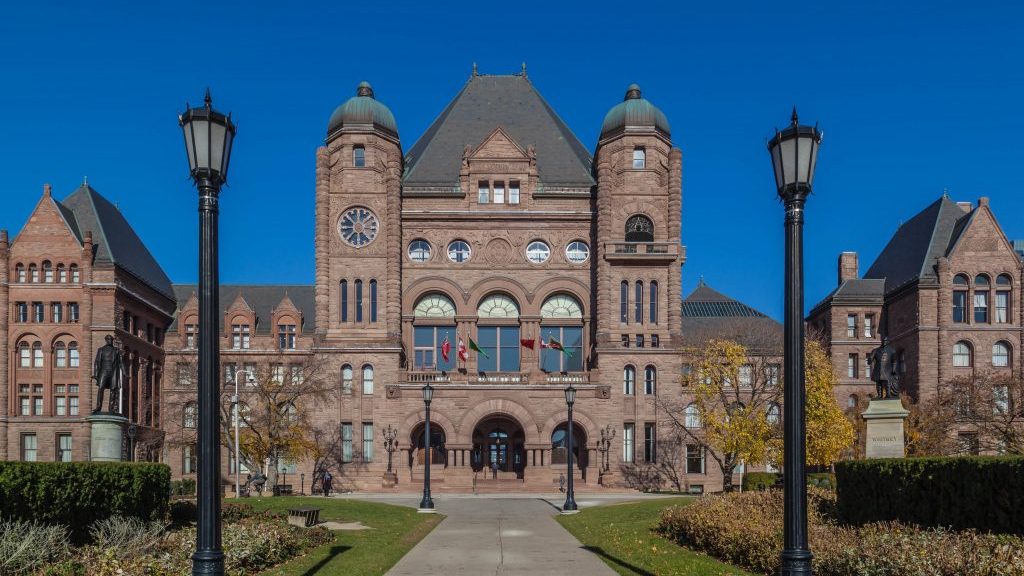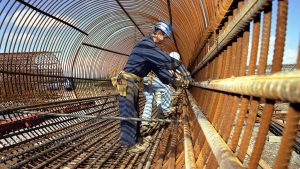Three groups recently submitted joint comments and recommendations on a discussion paper regarding modernizing Ontario’s Environmental Assessment program and issues such as reducing duplication and expediting the process still remain at the top of the list of concerns.
The Residential and Civil Construction Alliance of Ontario (RCCAO), the Municipal Engineers Association (MEA) and the Ontario Good Roads Association (OGRA) recently provided feedback on the discussion paper released by the Ministry of the Environment, Conservation and Parks. The groups have been advocating for Municipal Class Environmental Assessment (MCEA) reform for years.
A joint application calling for a review and changes to the EA Act and the MCEA process was submitted to the Environmental Commissioner of Ontario by the RCCAO and the MEA in February 2017. The groups were hoping to get a response from the government in January, but instead received notice the review was concluded and a new consultation process would be undertaken as part of the Made in Ontario Environmental Plan by the new Conservative government. Some issues were addressed with the recent passage of Bill 108, More Homes, More Choices Act, 2019, but issues still remain.
“We’ve had meetings and conference calls with people at Queen’s Park since last fall. We tried to make sure this was a priority because we didn’t want to lose the momentum we built up,” said Andy Manahan, executive director of the RCCAO, adding that while Bill 108 addresses some of the issues, it does not go far enough. “The consultation paper is the first one this government has put out…I think they recognize that certain changes are needed.”
The discussion paper explains key features of the environmental assessment process and communicates some immediate actions being proposed to modernize the almost 50-year old program. If passed, proposed amendments to the Environmental Assessment Act would help the ministry to modernize by focusing on projects that pose actual, real risks to our environment and communities, streamlining approval timelines and eliminating duplication, indicates the Environmental Registry of Ontario website.
As part of the new consultation process, the stakeholders focused their comments on Municipal Class EA issues specifically.
We are happy that they have passed Bill 108,
— Paul Knowles
Municipal Engineers Association
One of the key issues is reducing duplication and recognizing the Planning Act process, explained Manahan. The submission states “decisions made by municipal proponents under the Planning Act already address social and economic impacts for municipal infrastructure…thus the scope of MCEA review should be adjusted to avoid duplication with the Planning Act processes.”
“The Class EA is the one where projects already have a lot of oversight by municipalities,” Manahan said. “We tried to reemphasize that under the Planning Act there is an official plan process, secondary plans and so forth.”
The stakeholders also requested expediting the Part II Order process as the ministry’s responses to the requests over the past decade have been very slow, adding to an already long process for municipal infrastructure projects. Stakeholders suggested that the minister should delegate his or her authority for Part II Order decisions to the director of the approvals branch.
Another suggestion was to focus on higher risk projects which would allow lower risk projects to proceed through the approvals process more efficiently. Part of this is that Schedule A and A+ projects, which are considered low risk, should not be subject to Part II Order requests. Exempting low risk projects will likely improve timelines for smaller projects, the submission states.
From the 1980s until 2011, Schedule A and A+ projects, which includes routine maintenance activities, were considered to be pre-approved due to the low risk nature, explained Paul Knowles, the MEA’s MCEA adviser. Bill 108, which was received Royal Assent June 6, fully exempts these projects from any Part II Order under the Act.
“We are happy that they have passed Bill 108 which has closed that loophole that didn’t exist until 2011 and returned things to the way they were,” said Knowles.
“The loop hole created the ability for people to appeal maintenance activities and it just doesn’t make any sense to us. They said the way to fix it is do this regulation to exempt them or to change the act and to make it clear.”
The other issue MEA has had for many years is that when there is an appeal it has taken the minister between a year and two years to get a decision made. The submission suggests times for Part II Order requests would likely be improved if there was a regulation stipulating a hard deadline for responses to the ministry.
“What they have done in Schedule 6 of Bill 108 is limit the scope of a Part II Order request to issues of provincial importance,” explained Knowles, adding Bill 108 also includes provisions that the minister must respond before a deadline which will be prescribed in a regulation.
“They’re going to pass the regulation and we have asked for a 60-days deadline. We haven’t seen that date yet but that’s a very important change that when there is an appeal the ministry will actually deal with it in a timely manner as opposed to sitting in limbo and delaying a project for a couple of years.”











Recent Comments
comments for this post are closed